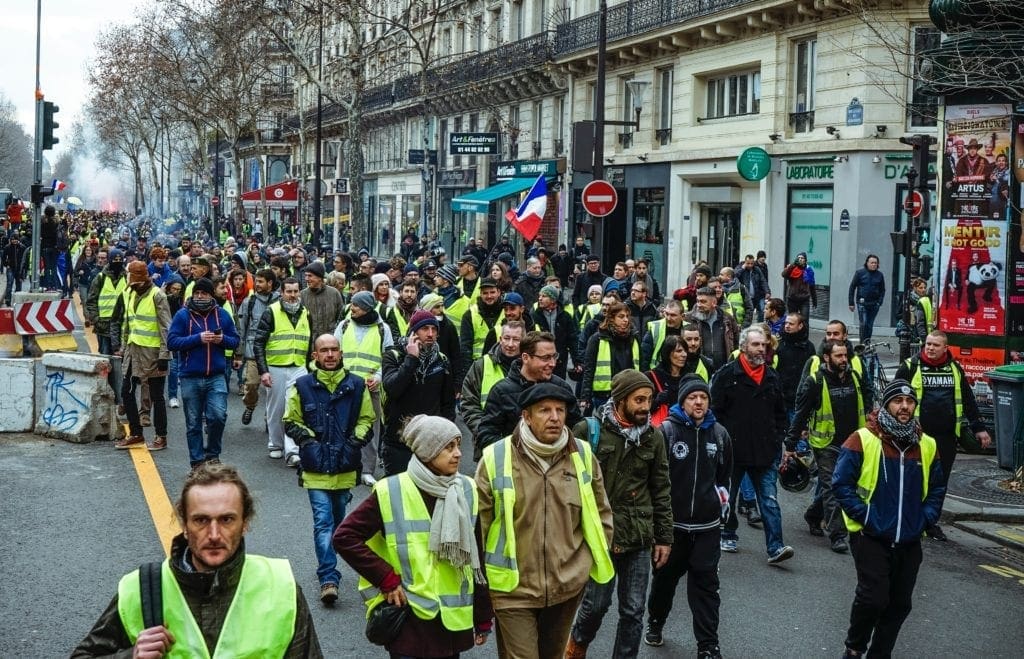Is France on the verge of a revolution? A recent poll carried out by the polling firm IFOP, found that 39 percent of Frenchmen see revolution as a viable means of generating political change in their country.

According to the French journal Atlantico, these numbers are much higher than anywhere else in Europe. In Germany, only 20 percent of citizens are in favor of revolution, while 14 percent of Austrians and Poles were receptive to revolting against their political class.
David Nguyen, IFOP’s consulting director, commented on this poll’s shocking discoveries:
“The first thing to say is that this is an absolutely spectacular number. Four in ten consider that a revolution would be a good solution: even if we do not know exactly what they put behind this word, it is the mark of a radical presence very present in the society.”
The consulting director also points out that the support for revolution covers the entire political spectrum, from the right wing populist party Rassemblement National (National Rally) and far left France Insoumise (Unsubmissive France) seeing revolution as their go-to option.
How has modern-day France reached such a state?
Let’s take a look at the gilets jaunes (yellow vests) protests, which both of the aforementioned parties support. Originally sparked by fuel tax hikes, the gilet jaunes has turned into a broad anti-government movement. Although this movement is an ideological hodgepodge of angry French citizens, there is reason to believe that the governing model of France is on the ropes.
Everyday French workers shoulder stiff tax burdens, government spending is out of control (it accounts for 56 percent of GDP), and the French labor market is shackled by over 1,500 pages of labor bureaucracy. On top of that, questionable migration policies have broken down the social cohesion of French civil society. So it’s safe to say that there’s a lot to get mad about in France.
However, this kind of frustration does not always translate into positive political change. Sometimes political anger that does not have a sound philosophical basis can lead to unruly mobs, as seen in a previous stage of French history during the French Revolution. The importance of ideas cannot be overstated, because they can make or break political movements.
There’s no question that free-market ideas are a tough sell in today’s political climate, especially in Europe. A more practical alternative is political decentralization. In other words, France should carry out its own “Frexit” and leave the increasingly burdensome European Union.
However, it should not stop there. France should respect the will of separatist movements within its borders, in areas such as Brittany and the Basque Country, and allow them to break off from the current French nation-state.
More competing jurisdictions will put pressure on states to craft policies that attract human talent and capital, as opposed to turning them into tax livestock that must be exploited by the political class. When evolutionary means of decentralization are available to us in the digital age of the 21st century, there’s no need to go through violent revolutions.

























